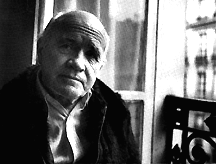 [WesMaps 98/99 Home Page]
[Course Search]
[Course Search by CID]
[WesMaps 98/99 Home Page]
[Course Search]
[Course Search by CID]
FREN224
Introduction to French Literature & Culture, II: 19th & 20th Centuries
FREN224 SP

Not Currently Offered
This course provides an introduction to a wide range of
French literary and cultural texts from the 19th century to
the present. Students read, discuss, and write papers in
French on some of the best known texts and authors in the
French literary canon, as well as others until recently
excluded from it. Texts from a variety of genres,
movements, and media are studied in relation to historical
changes in French society, politics and culture, and to more
general shifts in Western culture over the past two
centuries. Overall, the course seeks to encourage critical
reflection on the problematic category of "French
literature" itself, and its relationship to French culture
in general.
MAJOR READINGS
Readings will be chosen from among the
following:
Chateaubriand, RENE
Balzac, LE COLONEL CHABERT
Hugo, HERNANI
Flaubert, UN COEUR SIMPLE
Giraudoux, LA GUERRE DE TROIS N'AURA PAS LIEU
Sartre, HUIS CLOS
Camus, LA CHUTE
Beckett, EN ATTENDANT GODOT
Genet, LE BALCON
Sarraute, TROPISMES
LE PREMIER MANIFESTE DU SURREALISME
Selection of 19th and 20th Century poetry.
EXAMINATIONS AND ASSIGNMENTS
Four papers.
ADDITIONAL REQUIREMENTS and/or COMMENTS
This course is
intended for students who have completed a French course
numbered 215 or higher or have placed out of FREN215 through
the placement test this fall. Students who have not done so
should consult with the professor before preregistering.
Unless preregistered students attend the first class meeting
or communicate directly with the instructor prior to the
first class, they will be dropped from the class list.
NOTE: Students must still submit a completed Drop/Add form
to the Registrar's Office.
COURSE FORMAT: Discussion Lecture
REGISTRATION INFORMATION
Level: UG Credit: 1.00
Gen Ed Area & Dept: HA RLIT
Prerequisites:
None
Last Updated on MAR-22-1999
Contact wesmaps@wesleyan.edu to
submit comments or suggestions.
Copyright Wesleyan University, Middletown, Connecticut, 06459
 [WesMaps 98/99 Home Page]
[Course Search]
[Course Search by CID]
[WesMaps 98/99 Home Page]
[Course Search]
[Course Search by CID]
